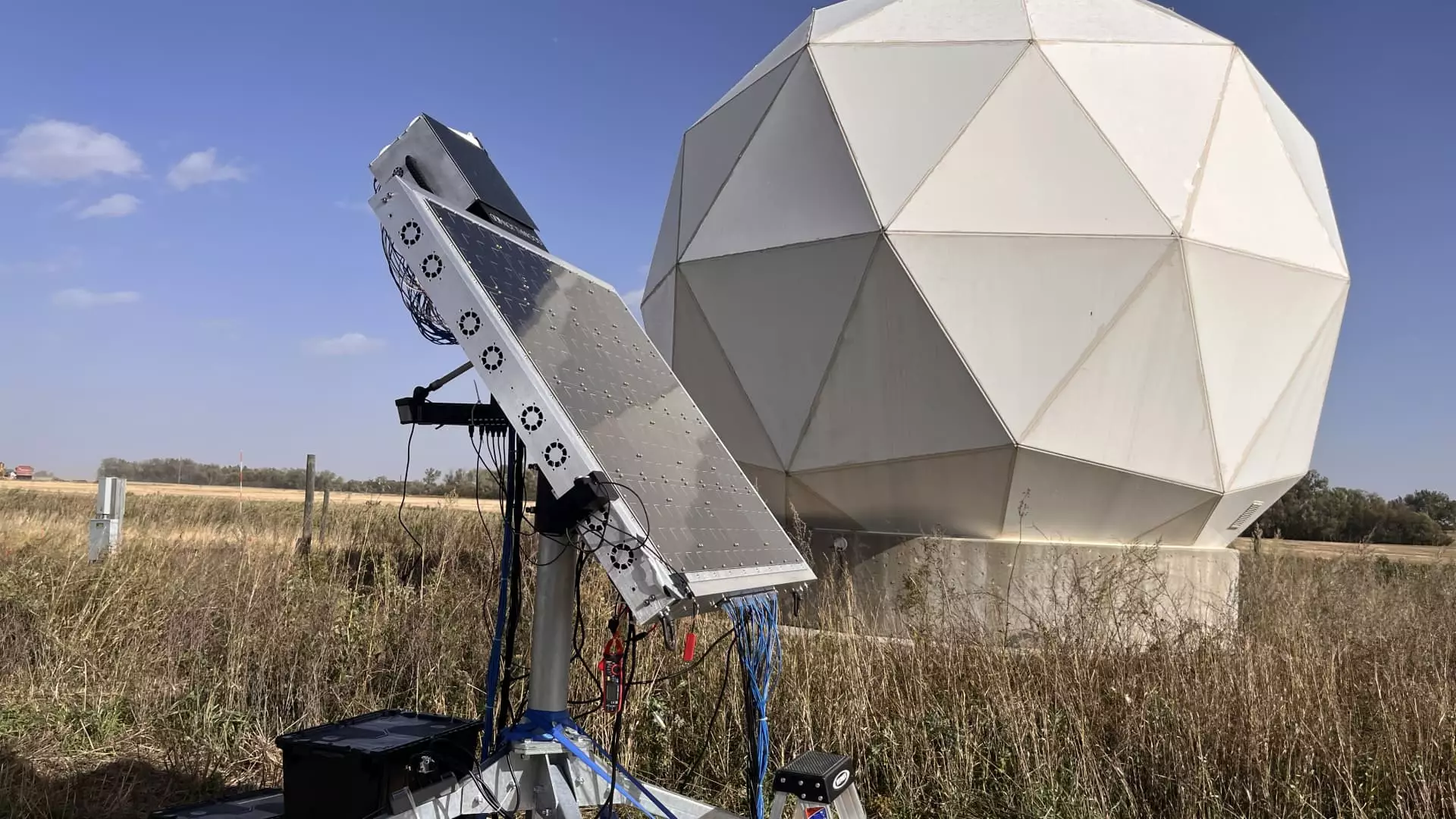In the dynamic landscape of satellite communication, the emergence of innovative companies is pivotal for advancing connectivity technology. One such company, Northwood Space, has recently caught the industry’s attention through a significant achievement in satellite communications technology. Spearheaded by Bridgit Mendler, a former television actress and accomplished singer, Northwood Space has set ambitious goals in establishing a robust ground station network that is tailored to meet the demands of an increasingly satellite-driven world.
Last week marked a significant milestone for Northwood as the startup successfully connected with Planet Labs’ imagery satellites. This accomplishment was made possible by the company’s innovative ground station system, which utilizes phased array technology. Bridgit Mendler, the CEO, emphasized the validation of their technology through extensive testing both in controlled environments and real-world applications. The company is based in El Segundo, California, and has been garnering interest since its unveiling earlier this year.
Ground stations serve as vital conduits for communicating with satellites, a reality that underscores their importance in the overall framework of space operations. Northwood aims to redefine this sector by mass-producing ground stations that utilize its proprietary system known as “Portal.” Unlike traditional parabolic dish antennas, which typically connect with one to three satellites at a time, the Portal system has the potential to establish simultaneous connections with as many as ten satellites. This capability represents a formidable leap in efficiency and performance for satellite communications.
The concept of Ground Station as a Service (GSaaS) is gaining traction, with several companies vying for dominance in this emerging market. Notably, tech giant Amazon has entered the sector with its AWS Ground Station service, while established satellite operator Eutelsat is also investing heavily in the infrastructure. However, Northwood Space seeks to take this model a step further. Mendler envisions a transformation of the status quo, looking to eliminate the costly inefficiencies and coverage gaps that currently plague the industry.
Drawing parallels to the cellular industry, Mendler likens ground stations to the essential infrastructure supporting mobile networks. Just as cellular tower companies optimize network efficiency by sharing resources, Northwood aims to leverage a shared model for ground station communication. This innovative approach could catalyze a significant shift toward a more economically viable and technologically advanced landscape in satellite communication.
Mendler posits that ground stations act as the “third leg of the stool” in the space technology ecosystem—complementing rockets and satellites. Each of these components plays a crucial role in enabling effective communication and operational capabilities within the industry. Currently, the space sector is ripe for growth, and Mendler believes that Northwood can interject its solution to accelerate advancements and foster industry development.
The practical applications of the Portal system came into focus last week when Northwood deployed its prototype antenna, affectionately named “Frankie,” in remote Maddock, North Dakota. This telemetry, tracking, and control (TT&C) test was essential for validating the operational capacities of their technology. The successful connection with Planet’s satellites using both S-band and X-band frequencies highlighted the system’s potential to provide consistent, reliable communication.
The Road Ahead for Northwood Space
With aspirations to introduce innovative ground station solutions, Northwood has ambitious plans for the future. The company is laying the groundwork to establish Portal stations capable of supporting numerous simultaneous satellite connections, with data transmission rates exceeding 1 gigabit per second per beam. Initial deployments are expected to begin next year, with locations under consideration across the U.S., Europe, Australia, and New Zealand.
Northwood’s rapid prototyping efforts have yielded promising results. In just four months, the company designed and tested the Frankie antenna, achieving live sky testing within six hours of deployment. The process was commended by Planet Labs, which recognized the speed and efficiency with which Northwood is tackling historical challenges in ground station technology.
As Northwood Space continues to pave the way for advancements in satellite communication, the company stands poised to disrupt the established norms of the industry. With its innovative phased array technology and dedication to redefining connectivity standards, Northwood not only addresses existing challenges but also unlocks the potential for future growth and collaboration in the space sector. Bridgit Mendler’s leadership and vision are undoubtedly steering Northwood toward becoming a pivotal player in transforming how we connect with the cosmos. As the industry evolves, it will be intriguing to witness how these developments unfold and shape the future of space technology.


Leave a Reply